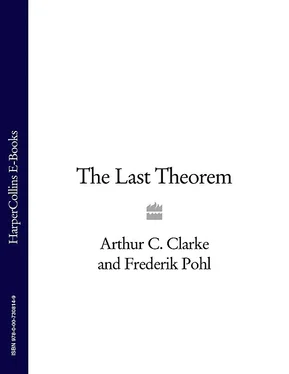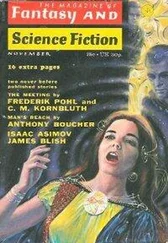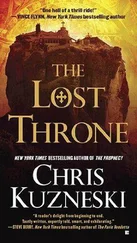An hour or so earlier Swami Rock would have been crowded with couples and whole families picnicking, sightseeing, or simply enjoying the cooling breeze that came off the Bay of Bengal. Now, with the sun lowering behind the hills to the west, it was almost deserted.
That was the way Ranjit preferred it. He loved Swami Rock. Had loved it all his life, in fact—or no, he amended the thought, at six or seven he hadn’t actually loved the rock itself nearly as much as he had the surrounding lagoons and beaches, where you could catch little star tortoises and make them race against one another.
But that was then. Now, at sixteen, he considered himself a fully adult man, and he had more important things to think about.
Ranjit found an unoccupied stone bench and leaned back, enjoying both the warmth of the setting sun at his back and the sea breeze on his face, as he prepared to think about the two subjects that were on his mind.
The first, actually, took little thinking. Ranjit wasn’t really disappointed at his father’s absence. Ganesh had not told his sixteen-year-old son just what it was that he wanted to discuss. Ranjit, however, was depressingly confident that he knew what it was.
What it was was an embarrassment, and the worst part of it was that it was a wholly unnecessary one. It could have been avoided entirely if he had only remembered to lock his bedroom door so that the porter at his university lodgings would not have been able to blunder in on the two of them that afternoon. But Ranjit hadn’t locked his door. The porter had indeed walked in on them, and Ranjit knew that Ganesh Subramanian had long since interviewed the man. He had talked to the porter only for the purpose, Ganesh would have said, of making sure that Ranjit lacked nothing he needed. But it did carry the collateral benefit of ensuring that Ganesh was kept well informed of what was going on in his son’s life.
Ranjit sighed. He would have wished to avoid the coming discussion. But he couldn’t, and so he turned his attention to the second subject on his mind—the important one—the one that was nearly always at the top of his thoughts.
From his perch atop Swami Rock, a hundred meters above the restless waters of the Bay of Bengal, he looked eastward. On the surface, at twilight, there was nothing to see but water—in fact nothing at all for more than a thousand kilometers, apart from a few scattered islands, until you reached the coast of Thailand. Tonight there had been a lull in the northeast monsoon, and the sky was perfectly clear. A brilliant star, its light slightly tinged with orangey-red, lay low in the east, the brightest star in the sky. Idly, Ranjit wondered what it was named. His father would know, of course. Ganesh Subramanian was a devout and sincere believer in astrology, as a temple priest should be. But he had also had a lifelong interest in secular science of all kinds. He knew the planets of the solar system, and the names of many of the elements, and how it was that a few rods of metallic uranium could be made to manufacture the electrical power that could light a city, and he had passed some of that love on to his son. What remained with Ranjit, though, was not so much about the astronomy and physics and biology of the world, but most of all that one subject that bound everything else together, mathematics.
That, Ranjit knew, he owed to his father because of the book his father had given him on his thirteenth birthday. The book was G. H. Hardy’s A Mathematician’s Apology . It was in that book that Ranjit first encountered the name of Srinivasa Ramanujan, the impoverished Indian clerk, who with no formal training in mathematics, had been the wonder of the mathematical world in the dark years of World War I. It was Hardy who received a letter from Ramanujan with some hundred of the theorems he had discovered, and Hardy who brought him to England and to world fame.
Ramanujan was an inspiration to Ranjit—clearly mathematical genius could come from anyone—and the book had left him with a specific, dominating interest in number theory. Not just number theory: in particular the wonderful insights that were the work of the centuries-old genius Pierre de Fermat, and even more in particular that towering question Fermat had left for his successors, the proof—or the proof that there was no proof—of Fermat’s celebrated last theorem.
That was Ranjit’s obsession, and it was the subject he proposed to devote the next hour to thinking about. It was too bad that he didn’t have his calculator in his pocket, but his best friend had talked him out of that. “You remember my cousin Charitha?” Gamini had said. “The one who is a captain in the army? He says that some of the guards in the trains are confiscating calculators. They sell them for what they can get. Your two-hundred-dollar Texas Instruments calculator they would sell for perhaps ten dollars to somebody who only wants to keep track of his cash outlays, so leave it at home.” Which Ranjit sensibly had done.
The calculator’s absence was an annoyance, but not a particularly important one, for the wonderful thing about Fermat’s last theorem was its simplicity. After all, what could be simpler than a 2+ b 2= c 2? That is, the length of one arm of a right triangle, squared, added to the squared length of the other arm equals the square of the hypotenuse. (The simplest case is when the arms are three units and four units in length and the hypotenuse is then five units, but there are many other cases with unitary answers.)
This simple equation anyone could prove for himself with a ruler and a little arithmetic. What Fermat had done to obsess generations of mathematicians was to claim that such a relationship worked only for squares, not for cubes or for any higher power. He could prove it, he said.
But he didn’t publish his proof.
(If you would like a fuller discussion of the Fermat’s last theorem, one is included at the end of this book, under the title “The Third Postamble.”)
• • •
Ranjit stretched, yawned, and shook himself out of his reverie. He picked up a pebble and threw it as hard as he could, losing sight of it in the dusk long before it struck the water below. He smiled. All right, he confessed to himself, some part of what he knew other people said about him wasn’t totally untrue. For instance, it wasn’t entirely wrong to say that he was obsessed. He had chosen his loyalties early, and he stayed with them, and now he was what one might call a Fermatian. If Fermat claimed he had a proof, then Ranjit Subramanian, like many a mathematician before him, took it as an article of faith that that proof did exist.
By that, however, Ranjit certainly did not mean an aberration like the so-called Wiles proof that he had tried to get his math professor to discuss at the university. If that cumbersome old turkey (it dated from the closing years of the twentieth century) could be called a proof at all—and Ranjit hesitated to use “proof ” for something no biological human could read—Ranjit didn’t deny its technical validity. As he had told Gamini Bandara just before that confounded porter had opened the door on the two of them, it certainly was not the proof that Pierre de Fermat had boasted of when he’d scribbled in the margin of his volume of Diophantus’s Arithmetica .
Ranjit grinned again, wryly, because the next thing he had said to Gamini was that he was going to find Fermat’s proof for himself. And that was what had started the laughing put-downs and the friendly horseplay that had led directly to what the porter had walked in on. And Ranjit’s mind was so filled with the memories of that time that he never heard his father’s footsteps, and didn’t know his father was there until the old man put a hand on his shoulder and said, “Lost in thought?”
Читать дальше












